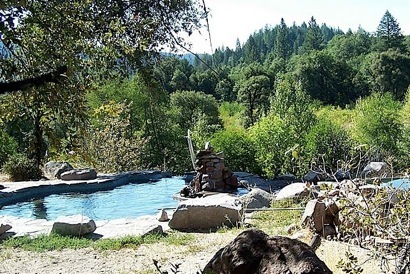








Home | About Us | Contact Us | Store

2008, Living Mandala
creative services by: 360 Degrees
Including
PERMACULTURE & ECOVILLAGE CURRICULUM
INTEGRATIVE ECO-SOCIAL DESIGN
WHOLE SYSTEM SUSTAINABILITY
SOCIAL PERMACULTURE
COMMUNITY GOVERNANCE
INNER ECOLOGY
GROUP PROCESS
HANDS-ON ACTION LEARNING
& MUCH MORE
In Association With
Big Bend Hot Springs Project
Herb’n Wisdom
Regenerative Design Institute
Facilitators, Instructors & Consultants
Penny Livingston-Stark
Rick Valley
Marisha Aurebach
Jay Ma
Greg Landua
John Valenzuela
Max Meyers
Jon Young
Additional Guest Instructors to be Announced Soon!
Course Inspiration
In this era of great transformation, falling oil supply, and global warming – we are on the edge with an empowering ability to design our world to be the change we wish to see. A growing number of people are tiring of a life of disconnection from nature, from the monotony of corporate jobs, and from the inherent unsustainability of their lifestyles. From retiring baby boomers & business executives, to younger people disinterested in careers without true ecological and humanitarian ethics, to indigenous peoples, to people of third world countries... people from all walks of life are recognizing permaculture, green technologies, and sustainable communities as solutions to some of the most challenging problems facing humanity at this time. People are not only seeking the practical solutions, tools, and skills they may need to adapt to these changing and uncertain times, but also are genuinely desiring to implement these technologies as a way of life. Imagine a world where humans live harmoniously and abundantly with the natural systems of the Earth... where food, medicinal, and useful plants grow everywhere ... where adults, children and elders give their gifts fully & rejoice in celebration from the blessing of living in community in balance with Nature. This is the life of an ideal Permaculture Homestead or Ecovillage - whether in the county, city or somewhere in between.
Course Description
We are excited to announce this first Holistic Permaculture Design Certification Course with a focus on InterGenerational Ecovillage Development. With a focus on tending the inner, outer, and community landscapes... this course will include the standard 72-hour permaculture design curriculum based upon the original Mollison and Holmgren ideas and design philosophies published in The Permaculture Designer’s Manual, as well as be a nourishing retreat and hands-on immersion experience in Ecovillage Design & Development. In addition to the standard Permaculture Design Certification curriculum, we recognize permaculture as a holistic design philosophy expanding in symbiosis with many related fields. Accordingly, this permaculture design course will integrate additional content and activities such as nature awareness, indigenous wisdom, holistic nutrition, embodiment practices, inner work, group process, and much more. During this intensive 17-day course participants will be immersed into an amazing and nourishing learning environment practicing skills to transform our lives and our communities into regenerative systems while contributing to the design & activation of an exciting Ecovillage project, living in community as a village, and experiencing profound personal renewal at this oasis of natural beauty and magic.

Topics to Include:

Who Should Attend?
The word “permaculture” itself came from the notion of establishing not only “permanent agriculture” but “permanent culture.” This course is meant for people from all walks of life, young and old, who are looking to learn the fundamentals of permaculture and the powerful solutions if has to offer not only in land stewardship, but across many sectors of society and the culture at large. We recognize and honor the wisdom that comes from cultural, gender, and age diversity as the true alchemy and wisdom of the Village. It is in the spirit of re-creating the Village that we are organizing this course and putting out the call to youth and elders alike. This course will be attended by ecovillage developers, retiring baby boomers, green business pioneers, professional landscapers & engineers, counter-cultural youth, visionary adults and many more who will together weave the alchemy of the Village.
What is Permaculture?
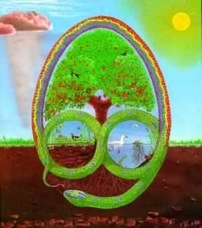
Contact
For questions and more information regarding the course
e-mail: education@livingmandala.com or
phone: (707) 634-1461
Permaculture Design Certification Course
InterGenerational Ecovillage Development
July 27 - August 13, 2010
Big Bend Hot Springs, Shasta County, Northern California
Ecovillages & Intentional Communities
Over thee last 50 years, the international Ecovillage and Intentional Communities movement has birthed communities all over the world and connected together communities that already exist or have existed for thousands of years. Some of these communities include eco-towns like Auroville in South India, the Federation of Damanhur in Italy and Nimbin in Australia; small rural ecovillages like Gaia Asociación in Argentina and Huehuecoyotl in Mexico; urban rejuvenation projects like Los Angeles EcoVillage and Christiania in Copenhagen; permaculture design sites such as Crystal Waters, Australia, Cochabamba, Bolivia and Barus, Brazil; and educational centres such as Findhorn in Scotland, Centre for Alternative Technology in Wales, Earthlands in Massachusetts, large networks like Sarvodaya (11,000 sustainable villages in Sri Lanka); EcoYoff and Colufifa (350 villages in Senegal); the Ladakh Project on the Tibetian plateau; and many more.
International & Intergeneration Movement
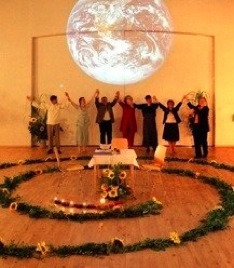
Big Bend, California
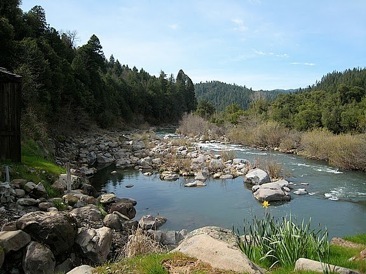
The course is being held in the small town of Big Bend, California, situated in the Cascade Mountain Range in Shasta County, nestled right between the peaks of two majestic volcanos: Mount Shasta & Lassen Peak. Mount Shasta is believed by some to be one of the world’s most sacred mountains, and includes California’s largest watershed and some of the best quality water in the world. Just over an hour’s drive from the nearest major city of Redding, Big Bend is a little known oasis of natural beauty. Home to eagles, river otters, foxes, bears, mountain lions, and many other specatular wildlife, Big Bend has a population of only around 150 human residents. In the 1930s and 1940s, the population of Big Bend was reportedly nearly ten thousand people. The abundance of good water, soil, vegetation, microclimates, and other natural resources in the area provided a large portion of the food for the people living there. Looking further back, Big Bend was the residence and sacred grounds to an indigenous population known as the Achomawi. The Pit River, which flows through the heart of Big Bend, was at one time the 3rd largest Salmon run on the west coast of the USA, and now has a native Rainbow Trout run that remains healthy. One of the most extraordinary resources in the area is the geothermal activity. Big Bend is situated on top of a geologic fault line that allows ground water to flow down to the hot rocks and to bring lots of hot geothermal water to the surface. Because of this, Big Bend is home to some of the most amazing geothermal activity on the west coast and enjoys incredible abundance of hot water and renewable energy.
Site Details - Big Bend Hot Springs Project
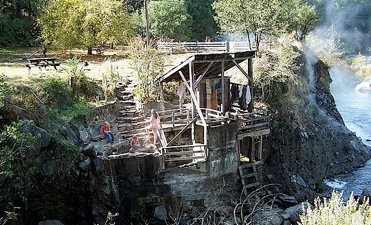
Big Bend Hot Springs is an extraordinary geothermal springs and place of natural beauty located in the small town of Big Bend, CA on the pit river, midpoint between two volcanos: Mt. Shasta and Mt. Lassen.
The Big Bend Hot Springs Project Core Goals are:
1. To preserve and protect the land and water resources as a natural area and wildlife sanctuary.
2. To re-open the small-scale public camping and soaking business (closed since 2006).
-
3.To develop a model sustainable permaculture facility with geothermally heated greenhouses to grow food.
For more information visit: www.bigbendhotsprings.org
Tuition & Registration
Tuition includes instruction, basic camping accommodations, hot springs soaking, and 3 delicious and highly nutritious meals per day for the 17- day duration of the course. Participants who successfully complete the course will receive a Permaculture Design Certificate with a focus on Ecovillage Development.
Standard Tuition: $1750 (for those making over 50 K annually) Be honest! This is the true cost of the course, and helps us to offer spaces for those who are earn less income.
Supplemented Tuition: $1500 (for those making under 50 K annually)
Early Bird: $1388 (those who register and pay in full before June 18).
Struggling Couple's Discount: $1250 each
Day Rate: $100 per day. Partial participation in this course is available for a day rate of $100 per day (including meals). Please inquire for the detailed schedule and let us know what days you wish to attend.
InterGenerational Discount
InterGenerational Discount - $1250 Register with a parent, grandparent, child, family member or friend with at least 15 years in age difference. Register Here.
Worktrade & Scholarships
Limited worktrade opportunities and partial scholarships are available. To inquire and apply please email: education@livingmandala.com.
Children
We currently do not yet have a children’s program running alongside and as part of this course, but children are welcome to attend and participate. The Village setting of the course provides a wonderful space supportive of children, but we expect the parent or guardian to be responsible for supervising the child at all times during the course. Children under 6 are free, children between the ages of 7 - 8 can attend for $200, and children between the ages of 9 -14 for $450. Please email us or call us for more information about bringing a child to this course email: education@livingmandala.com.
phone: (707) 634-1461
Refund Policy
A minimum $750 deposit is required to hold your space in the course with $125 non-refundable. Tuition in full is due no later than July 6th. Full refunds minus the non-refundable $125 deposit are given up until 3 weeks before the start of the course on July 6. No refunds are given after July 6th, though in the event of cancelation after July 6th, we may apply the credit towards a future course. If in the event the course is canceled, tuition will be refunded minus the $125 non-refundable deposit or can all be credited towards a future course.
Certification Applicability
Participants who successfully complete the course will receive a Permaculture Design Certificate. Design Certification has been valued for course credit at many colleges and universities.
Permaculture Design
Permaculture Principles
Natural Pattern Recognition
Nature Awareness
Reading the Landscape
Pattern Design & Biomimicry
Bird Language
Maps & Mapping
Designer Tools
Design Process & Methods
Zones & Sectors
Site Analysis
Maps & Mapping
Urban Permaculture
Social Permaculture
Invisible Structures
Tropical, Arid & Cool Climates
Whole Systems Design
Design Projects
Hands-On Activities
Sustainable Systems
Water Cycles
Water on the Landscape
Earthworks & Pond Building
Soil Food Web
Soil Ecology & Soil Building
Forest Ecology
Plants & Home Gardens
Agroforestry & Food Forests
Rain Harvesting & Catchment
Natural Building
Renewable Energy
Appropriate Technology
Humanure
Fungi & Myco-Remediation
Integrated Animal Systems
Aquaculture & Aquaponics
Wildcrafting


Instructors, Facilitators & Guests
Penny Livingston-Stark

Penny Livingston-Stark is internationally recognized as a prominent permaculture teacher, designer, and speaker. She is the founder of: Sustainable Living Designs (SLD) - a professional permaculture design/build firm integrating landscapes and structures with water, soil, plants and energy efficiency; The Permaculture Institute of Northern California (PINC) - an educational and research organization promoting sustainable technologies and methodologies; and Regenerative Design Institute (RDI) - a non-profit education program focusing on hands-on skills development. Penny has been working professionally in the land management and development field for 25 years and has extensive experience in all phases of ecologically sound landscape design and construction as well as the use of natural non-toxic building materials. She specializes in site planning & design of resource-rich landscapes, integrating rainwater collection, edible landscaping, pond and water systems, habitat development and watershed restoration for homes, co-housing communities, businesses and diverse-yield perennial farms. Penny is currently on the board of the Solar Living Institute in Hopland, California and has served on the Redwood Empire Chapter of the Green Building Council. She co-created the Ecological Design Program and its curriculum at the San Francisco Institute of Architecture and co-founded the West Marin Grower’s Group, West Marin Farmer’s Market, and the Community Land Trust Association of Marin.
Veteran Instructor
Rick Valley
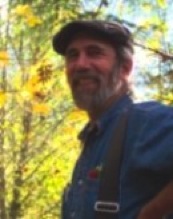
Veteran Instructor
Marisha Auerbach
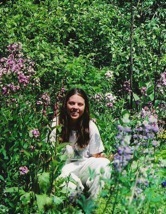
Instructor, Facilitator
Jay Ma
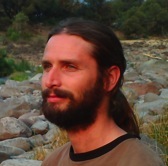
Instructor, Facilitator
Greg Landua

Greg Landua has studied marine and terrestrial ecology and evolutionary biology in the Galapagos Islands, translated for Amazonian rainforest guides, fought wildfires in the wilderness of Alaska, and studied the nuances of ecology and ethics. Greg has B.S. in Environmental Science and Ethics from Oregon State University, and is receiving a graduate diploma in Organizing Learning for Ecosocial Regeneration from Gaia University. He is currently the Program Coordinator for the Ecovillage Training Center on The Farm in Summertown, Tennessee. He is an active permaculture and ecovillage design educator, founding partner of the Nemawashi Partnership, and core member of the Living Mandala Design Collective. Along with teaching and practicing permaculture, Greg is an active bioregional organizer and NextGEN fellow helping to craft avenues and pathways for intergenerational dialog and collaboration in the shared enterprise of earth regeneration. Greg is also a member of the coordination team for the 10th Continental Bioregional Congress, and author of the blog Gaia Emerging which explores regenerative solutions for the well being of our planet.
Instructor, Facilitator
Jon Young
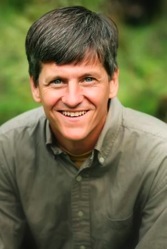
Guest Instructor
Corinne McLaughlin
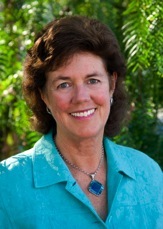
Guest Instructor
Gordon Davidson
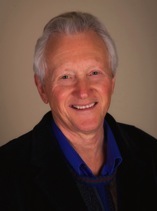
Guest Instructor
Chris Byrne
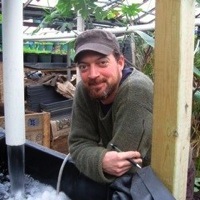
Guest Instructor
Marcela Castillo

Yoga Instructor
Max Meyers
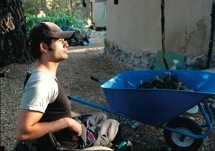
Guest Instructor
Leonard Barrett
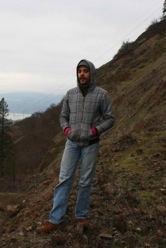
Guest Instructor
Affiliate Organizations & Sponsors
Become a sponsor of this course!
For details email: affiliates@livingmandala.com
Ecovillage Design & Community Building
Village Scale Design
Land Access & Legalities
Regenerative Real Estate
Community Governance
Democratic Decision Making
Compassionate Communication
Cultural Mentoring
Group Process & Facilitation
Community Building
Transition Towns
Ecovillage Design Charettes
Education
Cooperatives & Non-Profits
Intentional Communities
Holographic Org Design
Green Business
Green Economics
Alternative Currencies
Bio-Regionalism
Indigenous Wisdom
Personal Renewal
Health & Healing
Heart Circles
Holistic Nutrition
Yoga & Embodiment Practices
Inner Ecology
Zone Zero Work
Improvisation
Ritual & Ceremony
Personal Empowerment
Rites of Passage
Deep Ecology
Music & Song
Story Telling
Hot Springs Soaking




